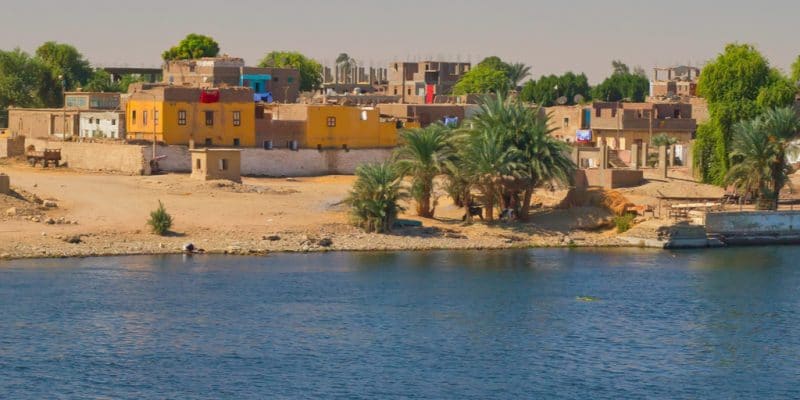The Egyptian government has just completed the connection of 106 villages to the sewerage network. These low-income households are located in 18 governorates of the country of the pharaohs.
The Egyptian authorities are increasing access to sanitation services in rural areas. During his recent visit to Sharm El-Sheikh, Egyptian President Abdel Fattah al-Sissi reported that 85,000 households have been connected to sewerage networks. The households benefiting from this sanitation service are in 106 villages in the governorates of Giza, Qalyoubeya, Alexandria, Luxor, Qena, Beni Suef, Menoufeya, Fayoum, Sohag, Damietta, Beheira, Cairo, Suez, Ismailiyah, Kafr al-Sheikh, Menya, Sharqeya and Assiut.
To encourage the connection of these low-income households, the Egyptian government has lowered the tariffs for connection to the sewerage network. The authorities also allow families newly connected to the sewerage collection network to pay the subscription fee in instalments of 40 Egyptian pounds (US$2.5). The implementation of this project in 18 governorates required an investment of 305 million Egyptian pounds ($19.4 million).
A large wastewater treatment plant soon to be operational
The extension of the sewerage network in rural areas is helping to achieve a 66% access rate to sanitation in Egypt. It is in line with the policy of the authorities aiming at the valorisation of wastewater in agriculture. As part of this strategy in response to the water stress affecting the country, the government is building one of the largest wastewater treatment plants in the world.
During his visit to Sharm El-Sheikh, Egyptian President Abdel Fattah al-Sissi also indicated that the Bahr al-Baqar wastewater treatment plant would come into service in 8 months. The plant is being built by Egyptian companies Arab Contractors (ARABCO) and Orascom Construction, at a cost of US$739 million, financed by the Arab Fund for Economic and Social Development (Fades), a pan-Arab development financial institution based in Kuwait (city).
Treated wastewater for irrigation
With an expected capacity of 5 million m3 per day, the Bahr al-Baqar wastewater treatment plant will enable the recovery of wastewater that flows along the Bahr al-Baqar drain. It meanders over 106 km from the governorate of Dakahlia to Sharqia, and from the governorate of Ismailia to the governorate of Port Said. The effluent that enters the drain during the journey comes from Sinai households, industries and plantations in the region.
As part of this mega-project, the treated wastewater will be used to restore and irrigate 138,600 hectares of plantations east of the Suez Canal. The project will thus support the Egyptian government’s new plan to rationalise water consumption throughout the Pharaohs’ country. The aim is to cope with the declining flow of the Nile, which supplies much of this North African country with water. The construction of the Bahr al-Baqar wastewater treatment plant is also financed by the Kuwait Fund for Arab Economic Development (KFAED).
Jean Marie Takouleu







